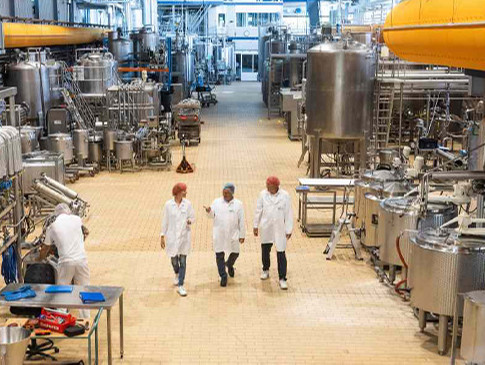
Despite growth to €10 billion by 2030, alternative protein startups face scaling issues. Foodvalley NL and Invest-NL have identified challenges and made recommendations for developing a Dutch ecosystem for alternative proteins. The report highlights that limited access to facilities, high operational costs, complex regulations, and funding shortages hinder scaling efforts. With national collaboration, targeted infrastructure, and innovative financing models, the Netherlands can further strengthen its role in food innovation.
Accelerating the protein transition requires innovation, but startups and scale-ups in the alternative protein sector face various obstacles when scaling from lab to commercial production. Current pilot and demonstration facilities do not meet the growing demand, and limited access to shared facilities leads to delays in market introduction. High operational costs, including expenses for equipment, personnel, and raw materials, present a significant financial burden. Navigating regulations for new food products further complicates the process. Moreover, the "Valley of Death" – the critical funding gap between R&D and commercialization – hinders innovation and market access.
To overcome these challenges and harness the full potential of the alternative protein sector in the Netherlands, Invest-NL and Foodvalley NL recommend several actions. Developing a national strategy that creates innovation clusters and streamlines regulations is crucial. Government policy should support this collaboration with structural funding and infrastructure.
Strategic investment in shared facilities is essential. Establishing regional hubs with advanced shared facilities, supported by public-private partnerships, can help companies grow faster. Implementing flexible access models will make these facilities more affordable for startups and scale-ups.
Financial support mechanisms need expansion with vouchers, subsidies, and innovative financing models. Introducing bridge financing programs is also important to bridge the gap between the R&D phase and commercialization.
"To achieve a sustainable and climate-neutral food system, transitioning to alternative protein sources with lower emissions is crucial. The Netherlands has a unique opportunity to become a global leader in the alternative protein revolution. This report serves as a call to action for all parties to work together and stimulate the growth of this promising sector," says Michiel Strijland, Business Development Manager at Invest-NL.
"The report highlights the critical need to address the scaling challenges of startups and scale-ups," says Emmanuel Anom, Lead Shared Facilities at Foodvalley NL. "By strategically investing in shared facilities and implementing supportive financial mechanisms, we can position the Netherlands as a world leader in the transition to sustainable protein production."
Source: Foodvalley
Source: ©FoodValley